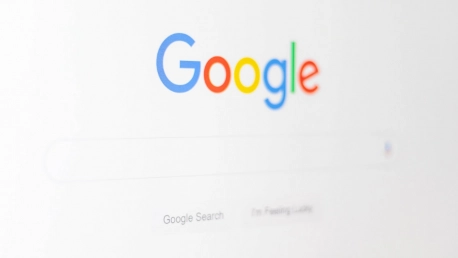Google has recently announced BERT, one of the biggest updates to its search algorithm in recent years. At its core, this new update focuses on improving the interpretation of the intent behind search queries. Is BERT one of Google’s biggest leaps forward in the history of Search? Maybe. Keep reading to discover all you need to know about Google’s latest search algorithm.
The New Google BERT Update Explained
Last year, the tech giant introduced and open-sourced a neural network-based technique for natural language processing (NLP) pre-training called Bidirectional Encoder Representations from Transformers – BERT. This technology enables anyone to train their own state-of-the-art query answering system.
“This breakthrough was the result of Google research on transformers: models that process words in relation to all the other words in a sentence, rather than one-by-one in order. BERT models can, therefore, consider the full context of a word by looking at the words that come before and after it—particularly useful for understanding the intent behind search queries”, according to a post on the Google AI Blog. In plain English, this means that the updated algorithm will help Google understand conversational language, prepositions, postpositions, negatives, and other words it previously might not have paid much attention to.
BERT started rolling out for English language queries at the end of October and will be fully live shortly, with support for other languages and locales coming later.
The update is not expected to impact every search query at this time. Google estimates that BERT will impact approximately 10% of all Google searches. Given that every day brings 5.6 billion Google searches, that’s a whopping 560 million.
What BERT Actually Means for Your SEO Activities
Since the new update is meant to improve the machines’ understanding of user queries and search intent, BERT is not an algorithm that penalizes anyone. As always, websites or blogs featuring well-written content will be the winners of the update. Google’s main recommendation for content creators remains the same: “write for people, not for machines”.
“By applying BERT models to both ranking and featured snippets in Search, we’re able to do a much better job helping you find useful information. Particularly for longer, more conversational queries, or searches where prepositions like “for” and “to” matter a lot to the meaning, Search will be able to understand the context of the words in your query. You can search in a way that feels natural for you”, Google explained.
Can you optimize your content for BERT? Probably not. The update is Google’s effort to better understand the searchers’ queries and match them to more relevant results. Also, it’s important to know that BERT is simply one more method for understanding content and queries, and that it does not replace RankBrain. We already know that SEOs can’t really optimize for RankBrain, and there’s no reason to think that things will be different with BERT. Writing for people IS “optimizing” for the BERT algorithm.
Furthermore, in the fairly short time since the algorithm was rolled out, many SEOs and tracking tools have yet to notice any big changes in Google’s search results.
Will BERT Impact the Percentage of Zero-Click Searches?
It will be interesting to see if the new update impacts the percentage of so-called “zero-click searches”.
According to a study released by Jumpshot (the data arm of Avast), in June of 2019, for the first time, the majority of Google searches (50.33%) ended without a click on an organic or paid search result. The study estimates that 94% of all U.S. searches occur on a Google platform (including YouTube, Images and Maps). The majority of zero-click and paid search growth happened on mobile devices, where the overall search volume is the highest.
Data shows that Google is successful in its ongoing attempts to answer more searches without a click, or with a click leading to Google’s platforms.
Considering that some of the “zero-click searches” are the result of searches answered by the results (no further clicks are needed), searches that end because the user was frustrated and/or couldn’t find an answer, the new algorithm could have an impact on this “anomaly”. Only time will tell whether BERT can solve this worrying problem.
The addition of the BERT algorithm, designed to better understand what’s important in natural language queries, is a significant change and definitely a step forward. In its statement, Google said the update is “one of the biggest leaps forward in the history of Search”, certainly the biggest leap forward in the past five years.









